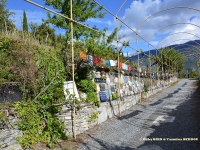Politics
The PP of Rajoy won the Spanish elections but lost a third of its support
Start a time of pacts
USPA NEWS -
Spain opened Sunday a new time far of the bipartisanship that since the restoration of democracy in 1975, has marked the country's political future. The conservative Popular Party (PP) of Prime Minister, Mariano Rajoy, won the legislative elections, but it will be difficult to govern.
The PP won the elections with 28.72% of the vote and 123 deputies, far from the absolute majority enjoyed by the previous legislature, which in the Spanish Parliament is set to 176 seats. Second was the Socialist Party (PSOE) with 22.01% of the vote and 90 deputies. The conservatives won more than seven million votes. Since both parties highlighted that the formation of Government will be reduced to these two formations, but the Popular Party of Prime Minister Mariano Rajoy insisted that the only legitimate body to form a Government is the winner of the elections.
Conservatives need support to form a Government. And not have it easy. As was the third political force was the left party Podemos, with 20.66% of the vote and 69 deputies. In fourth place was the centrist Citizens, with 13.93% of the vote and 40 deputies. Not a center-right coalition between PP and Citizens even a left between PSOE and Podemos obtained an absolute majority to govern.
Thirteen political parties are represented in the Spanish Parliament during the XII Legislature. Following the above, the Republican Left of Catalonia won nine deputies, the Catalan nationalists of Democracy and Freedom - the brand new election of the president of the regional Government of Catalonia, Artur Mas - won eight seats, the Basque nationalist PNV managed six deputies, Communist United Left (IU its acronym in Spanish) had two deputies, the Basque separatist coalition EH Bildu won two seats and insular Canary Coalition party won a deputy.
The key to the governance will have these six minority parties and among them, once again, the Catalan and Basque nationalists. The conflict raised by the independence movement in Catalonia necessarily reject the support of the Republican Left of Catalonia and of Democracy and Freedom to a PP government. Easier seems that the Basque nationalist PNV and Canary Coalition support the conservatives. Sunday night, all political leaders agreed that a new stage of dialogue between the different configurations opens.
Participation in these elections stood at 73.20% and 26.80% abstention rate. Election day passed without incident, despite being held to a level 4 out of 5 of terror alert. Popular Party and PSOE lost a significant number of votes on the legislative 2001. For the conservatives lost a third of the support obtained four years ago and recorded its worst election result since 1989. Worse they had the PSOE, which was recorded its worst result since the restoration of democracy.
With these data, Mariano Rajoy's inauguration for a new term is in the air. The Spanish brand Electoral Act that the new Parliament will be the next January 13, 2016 and the investiture session will be held the week of 24 to 29 of the same month. Who is subject to the confidence of Parliament as a candidate for the Prime Minister is, for now, a mystery.
Liability for this article lies with the author, who also holds the copyright. Editorial content from USPA may be quoted on other websites as long as the quote comprises no more than 5% of the entire text, is marked as such and the source is named (via hyperlink).






